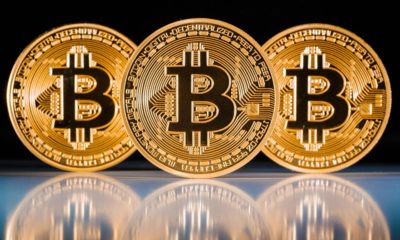- More Nigerians Turn to Virtual Currency, Ignore CBN Ban
The current depreciation of the Naira, growing popularity of Ponzi schemes and other electronic transactions, have all paved way for virtual money (computer generated currencies) such as Bitcoin, to continue thriving in the country despite a recent ban by CBN. FRANKA OSAKWE, takes a look at the impact of this on criminal and money laundering activities in the country.
In January, the Central Bank of Nigeria (CBN) issued a circular to banks and other financial institutions requiring them not to use, hold, trade and/or transact in any way in digital currencies. The CBN cited money laundering and terrorism financing as reason for ban, specifically naming “Bitcoin, Ripples, Monero, Litecoin, Dogecoin, Onecoin,” and similar virtual currencies.
Despite this crackdown on virtual currencies in banks, international transactions have continued online using virtual currencies as more countries embrace the payment mode.
Investigations reveal that the users have no need of banks, or regulators to transfer virtual currencies, all they need is their laptop and an internet connection.
Across the globe, the popularity of virtual currency such as Bitcoin are increasing with big companies like Microsoft, Dell, Amazon, accepting it as currency of payment and some countries such as Barbados now making use of Bitcoin as legal tender. Hence anyone can buy international products and services online from these countries using the currency.
Here in Nigeria, interest has also been spiked, driven by the popularity of Ponzi schemes like MMM, which promises huge financial return using the Bitcoin currency.
For instance, Mr. Obinna, 35year old importer, who does his international transactions using Bitcoin, says he has been trading in Bitcoin for two years now without the help of any bank. “so, the ban does not stop me from trading with the currency. Bitcoin doesn’t need bank.
The high interest rate charged by Nigerian commercial banks makes it hard for us to transfer foreign currency through banks. But through the use of Bitcoin, I transfer money to my foreign associates in Bitcoin and they can convert it to their currency. This makes transfer of fund easy, even undetected and I don’t pay any bank interest”, he said.
According to him, he has become a multi-millionaire overnight just by trading with the virtual currency. Aside that, Obi revealed that he also buys and trade Bitcoin. “I buy the currency when the rate is lower and sell when higher, just like forex trading. For me to do this, I have to monitor the market”, he said.
On how he exchanges the virtual currency for real cash he said, “Bitcoin has an online exchange platforms such as Netteller, Bitex and Localbitcoin.com. When I go to any of the sites, I can sell or exchange my Bitcoin for Dollar, Naira, Pound, Euro or any real currency. I can also buy Bitcoin at lower rate from any of the exchangers, and sell at higher rate to another exchanger based on their selling prize”, he said.
Another Bitcoin user, Michael, said he got introduced to Bitcoin through the MMM ponzi scheme, “whenever I play games online or invest in MMM scheme using Bitcoin, I discover that the return is much higher. From then I got more interested in Bitcoin- I soon realize that the currency has high global acceptance and value more than dollar and other currencies. For instance, today one Bitcoin is equivalent to about 1000 USD depending on the exchangers. Now I carry out transactions on the internet using Bitcoin and it is easier for me- no bank interest, the transfer is swift and anonymous”, he said.
As at the time of this publication, Bitcoin virtual currency, sells for the rate of 1Bitcoin to 1011USD, making it almost as equal to gold in value!
“But the currency is flexible, meaning it can go up today and come down tomorrow,” an IT Specialist, Mr. Chukwudalu Chukwuneta, divulged. He explained why the currency is so favoured. “it is anonymous- users can hold multiple bitcoin addresses that are not linked to names, addresses, or other personally identifying information. you can transfer 50 million Naira worth of Bitcoin and no one will know or question you. It is also fast-You can send money anywhere and it will arrive minutes later, as soon as the bitcoin network processes the payment. Unlike bank transaction, there is no transaction fee. It is not controlled by one central authority and it is easy to set”, chukwuneta explained.
It is these characteristics that make it easy for money laundering and illegal activities to be undetected. According to President of the Information Security Society of Africa (ISSAN), Dr. David Isiavwe, the major risk virtual currencies have today is anonymity.
“You can be conducting a transaction with someone and you won’t even know the actual identity of the person. You don’t know if you are dealing with a woman or a man, you don’t know the person’s BVN number, address or detail. This is a problem because it makes it susceptible to money laundering, and other cyber- crimes.

 Forex3 weeks ago
Forex3 weeks ago


 Naira2 weeks ago
Naira2 weeks ago
 Billionaire Watch2 weeks ago
Billionaire Watch2 weeks ago




 Naira2 weeks ago
Naira2 weeks ago




 Naira2 weeks ago
Naira2 weeks ago




 Naira1 week ago
Naira1 week ago




 Naira3 weeks ago
Naira3 weeks ago




 Naira4 weeks ago
Naira4 weeks ago
















